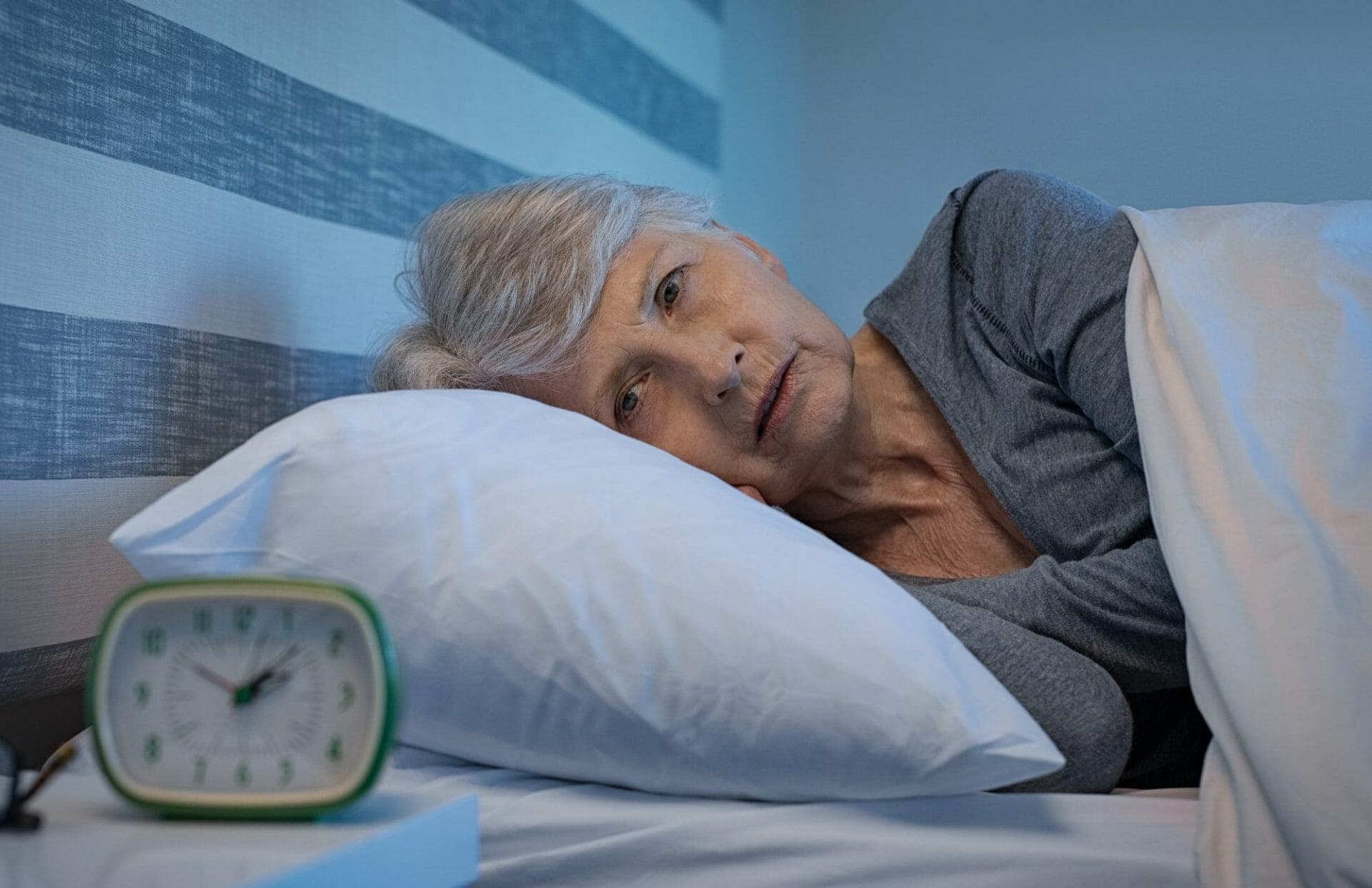If you find you’re having more trouble sleeping as you get older, you are not alone. Sleep quality declines with age, and every aspect of your life suffers when you don’t get enough sleep. Sleep issues can seem hard to resolve, especially if you’ve been battling sleep deprivation for many years. Don’t just endure lower quality sleep. Try these 5 sleep habits for better sleep today!
Go to Sleep At the Same Time Daily
Just as your morning routine benefits from waking up at the same time every day, your sleep will improve if you can aim to go to sleep at the same time each day. This might have been especially challenging when you were working an exhausting schedule or had small children at home. If you’re now retired and/or no longer have kids at home, it’s the perfect time to establish a consistent bedtime. Studies have shown going to bed at the same time each day will help you fall asleep more quickly and sleep better all night long.
Create a Sleepy Environment
While many of us get used to falling asleep in front of the TV, creating a quiet, dark sleeping space will help you get much better sleep. Try blackout curtains to achieve a darker environment. Some people like to sleep with sound machines, which can be particularly helpful if you live in an apartment with thin walls or a noisy neighborhood. Even just the white noise created by a fan can help keep ambient noise from waking you up at night.
Get Some Movement
Leading a sedentary lifestyle can make sleep harder. Getting any amount of joyful movement every day will help you fall asleep faster and stay asleep longer. For most people, moderate to vigorous exercise most days of the week will lead to better sleep. One study found that older adults who live in Senior Living Communities got better sleep if they exercised. Exercise has lots of other health benefits too, and it’s never too late to start.
Limit Daytime Sleep
We all love a good nap now and then, but long or consistent daytime naps could be getting in the way of your nighttime sleep. Try to keep your naps to around 30 minutes each day. You can check out more napping do’s and don’ts here.
Cut Back on Caffeine
Caffeine, obviously, makes it more difficult to sleep–which is why most of us drink it! But caffeine stays in your bloodstream longer than you might expect, so even drinking it in the early afternoon could be hurting your sleep quality. It can take up to 10 hours for caffeine to clear your system, so make sure you stop drinking caffeine at least 10 hours before you plan to go to sleep. For most people, that means no caffeine after noon at the latest.
Limit Alcohol and Large Nighttime Meals
Alcohol can make you feel sleepy, but it doesn’t actually help you get better sleep. Many studies have shown that drinking alcohol, especially in excess, leads to poorer quality sleep. Eating a huge meal right before bed can make it hard to sleep, too. So try to limit alcohol most nights, and try eating dinner a little earlier.
If you’re having more trouble sleeping as you get older, try these 5 sleep habits for better sleep today!




